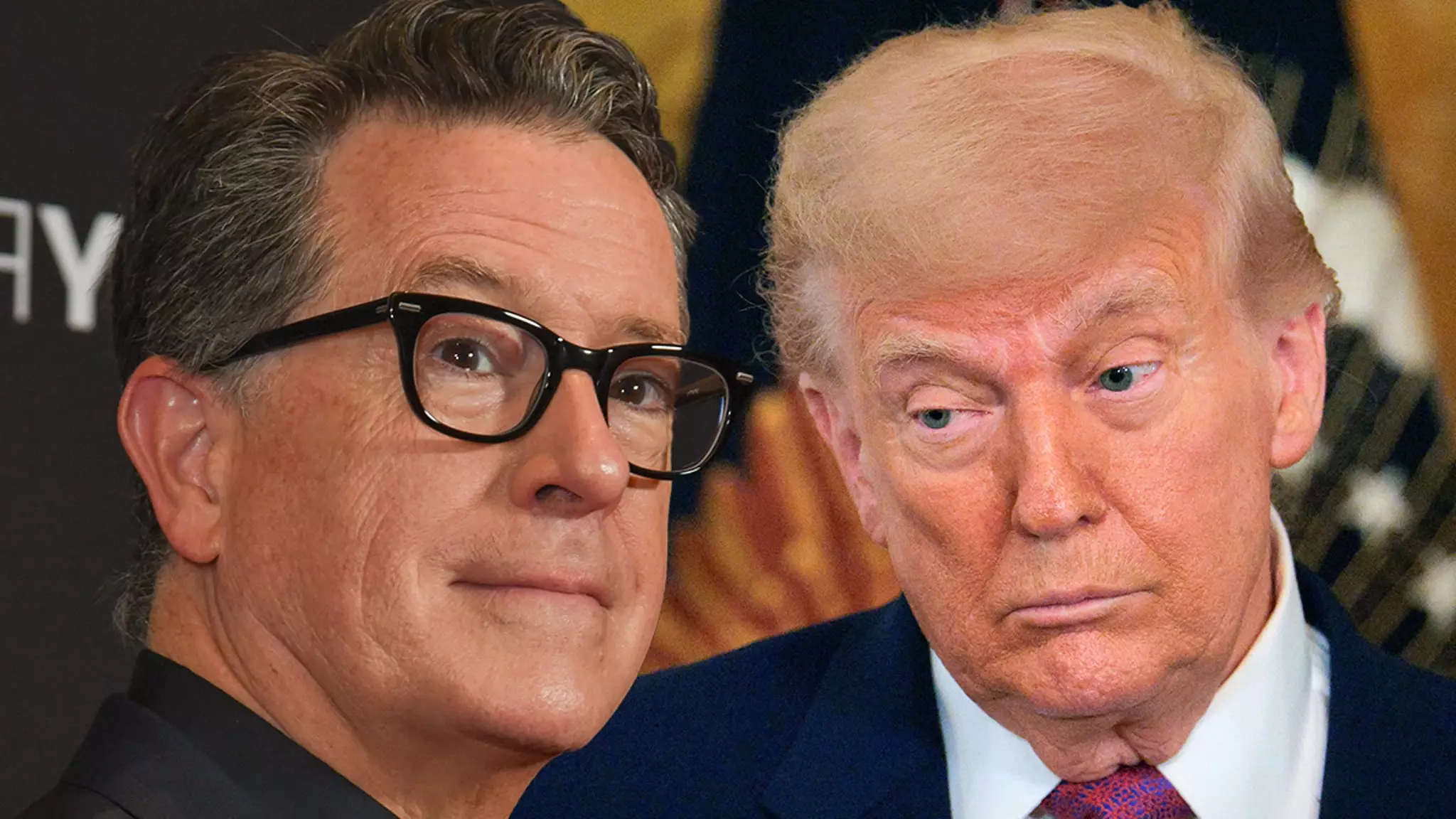In an era where political correctness frequently muffles outspoken voices, Stephen Colbert’s recent tirade against Donald Trump exemplifies the importance—and risks—of speaking candidly. With a fiery monologue, Colbert didn’t hold back, unleashing a wave of expletives and unapologetic criticism aimed directly at the former president. This raw expression of disdain signals a troubling shift in the arena of political discourse: truth is now often sacrificed on the altar of corporate interests and media complacency.
Colbert’s unfiltered stance reveals a profound frustration with how powerful institutions become complicit in stifling dissent. By publicly cursing Trump and declaring his “gloves are off,” the comedian underscores his resolve to confront real issues, no matter the backlash. His boldness isn’t mere spectacle; it’s an act of rebellion against a cultural climate that discourages honesty in favor of sanitized narratives. This push for authenticity starkly contrasts with the calculated politeness often favored by mainstream outlets, highlighting a crucial need for voices willing to challenge the narratives that serve the powerful.
Corporate Influence and the Erosion of Genuine Journalism
The controversy surrounding the cancellation of “The Late Show” illuminates a broader pattern in media: the intertwining of corporate interests with political agendas. CBS’s parent company, Paramount Global, cited financial difficulties as the reason behind ending Colbert’s show. However, a deeper look reveals more insidious motives. The $16 million settlement with Trump over CBS’s “60 Minutes” interview scandal is a glaring example of how corporate decisions are often made not on journalistic integrity but on damaging compromises under political pressure.
Colbert’s accusation that the settlement was an “extortion fee” echoes a growing sentiment: mainstream media and entertainment companies are willing to sacrifice truth and integrity to maintain lucrative relationships with political figures. The notion that financial considerations trump journalistic independence is a bitter pill to swallow. For a medium built on informing the public, such compromises threaten to turn it into a mouthpiece for corporate and political interests, eroding trust and undermining democracy.
Echoes of a Dying Independence in the Corporate Media World
The reaction from fellow comedians and industry insiders further exposes the fraying fabric of media independence. Jimmy Fallon’s and others’ public expressions of concern over Colbert’s departure demonstrate a shared recognition that the current media environment is increasingly hostile to honest critique. The sentiment is that corporate-driven censorship is throttling creative freedom, turning once-independent platforms into sanitized outlets that serve the status quo.
Ironically, this atmosphere fuels dissatisfaction among viewers who crave genuine engagement with political realities. The mixed reactions—ranging from admiration for Colbert’s bravery to accusations of arrogance from critics—highlight the polarized landscape of public opinion. Many viewers see Colbert as a rare voice challenging the corrupt machinery, while skeptics dismiss his outspokenness as arrogance or self-promotion.
The Future of Media: Fear, Compliance, and the Need for Courage
Ultimately, Colbert’s stand and the subsequent backlash reflect a larger cultural crisis: the erosion of courage within institutions that should champion truth. The climate of fear and pre-censorship pervades many corners of the media industry, influenced heavily by political and corporate pressures. The climate has cultivated an environment where telling the unvarnished truth is perceived as risky, prompting many to conform or remain silent.
The media landscape genuinely needs more voices like Colbert’s—brave, unafraid, and willing to call out injustice regardless of potential consequences. Failing to do so risks further degradation of public discourse, leaving audiences with narratives dictated by vested interests rather than truth. As long as profitability and conformity are prioritized over integrity, the industry will continue to drift toward obsolescence, losing its role as a watchdog and a conduit for authentic dialogue.
The ongoing saga surrounding the end of Colbert’s show is emblematic of a broader crisis. It raises urgent questions about the future of free speech, journalistic independence, and the role entertainment plays in shaping—rather than manipulating—public opinion. Without a concerted effort to prioritize truth over profits, the very soul of honest journalism remains in peril, threatened by the relentless machinery of corporate and political expediency.

